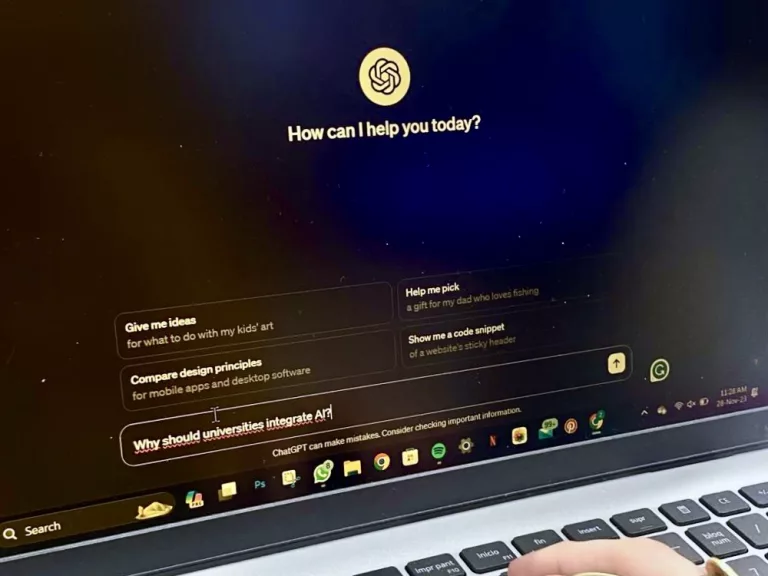 Deprecated: strip_tags(): Passing null to parameter #1 ($string) of type string is deprecated in /var/www/vhosts/iestork.org/httpdocs/wp-content/themes/Newspaper/loop-single.php on line 64
Deprecated: strip_tags(): Passing null to parameter #1 ($string) of type string is deprecated in /var/www/vhosts/iestork.org/httpdocs/wp-content/themes/Newspaper/loop-single.php on line 64" />
An urgent renovation in higher education’s approach to AI is needed. More so than needed, it is inevitable. It is in the same manner as it was for computers and calculators; their implementation in the classroom and for math were once pivotal debates relevant to education that have now become trivial.
There was initially large skepticism from the academic community toward using AI and accepting it as a part of educational advancement. While skepticism has generally fallen, universities are at a crossroads with change. Rather than fear the change and the possible setbacks of AI, institutions should face change head-on and take advantage of the vast benefits that can come from integrating AI with education.
There is no way for education to be replaced by AI, but there are many ways in which AI can supplement a university’s general functionality. Administrators should meet and discuss how to make AI complement education, rather than let education mindlessly mold itself to AI behind the scenes. It could vastly benefit professors, students, and the institutions as a whole.
In May of 2023, IE University released its “AI Manifesto” as a reflection upon AI’s impact on education and the relationship which the institution hopes to create with it. The manifesto laid out various ways in which it has and plans to implement, such as recent education expansion into fields concerning AI as well as faculty including “AI-related content into their pre-existing courses.”
First-year IE Computer Science and AI student, Sofia Gonzalez said, “To a certain point, it [AI] can help you but I don’t think it can replace education right now… AI is not ready, it is not at a point where it can replace someone like professors. [But,] AI would help professors to do everything more efficiently… so much time and effort can be saved for them only by the implementation of AI.” It is true that professors would be able to use AI to have streamlined grading and attendance processes.
AI can maximize efficiency and lower costs and effort for universities. When it comes to admissions, AI can help sort through applications by looking through test scores, for example.
For students, AI offers guidance for their learning needs. It is accessible at any time of the day, quick and efficient. Often, the fear is that students’ knowledge will become AI-dependent. To this Gonzalez said, “I don’t think degrees can be done fully with AI. And, while AI can give you ‘an answer’ it won’t get you to where you need to be on its own.” AI can’t give one the complete basis of knowledge needed to enter any given profession, but it provides certain unique tools that alleviate and make college education efficient. This is a benefit, it allows students to learn more, with more ease, in less time.
Still, “The problem is that since there’s little regulation right now it can be placed in the wrong hands,” Gonzalez said. For this reason, it is important for administrators to get ahead in conversations about AI use, rather than overlook or ban the use of AI. Students will find ways to use AI no matter what the circumstances, so it is best to have a progressive instead of a restrictive policy. Universities could even consider providing AI for their students, integrating it well.
IE reflects a similar perspective, seeking to balance the clear advantages and possible downfalls of AI. The manifesto stated that in entering “the AI Era it will also be growingly important that humans mediate the impact of these technologies through the use of critical thinking, and the development of a humanist approach to innovation.”
The use and implementation of AI is “inevitable and we have to learn to live with that,” Gonzalez said. It is time for higher education to plan for the appropriate implementation of AI, seeing as there is no way to altogether remove the growing influence of it on education.
Featured image: by Author